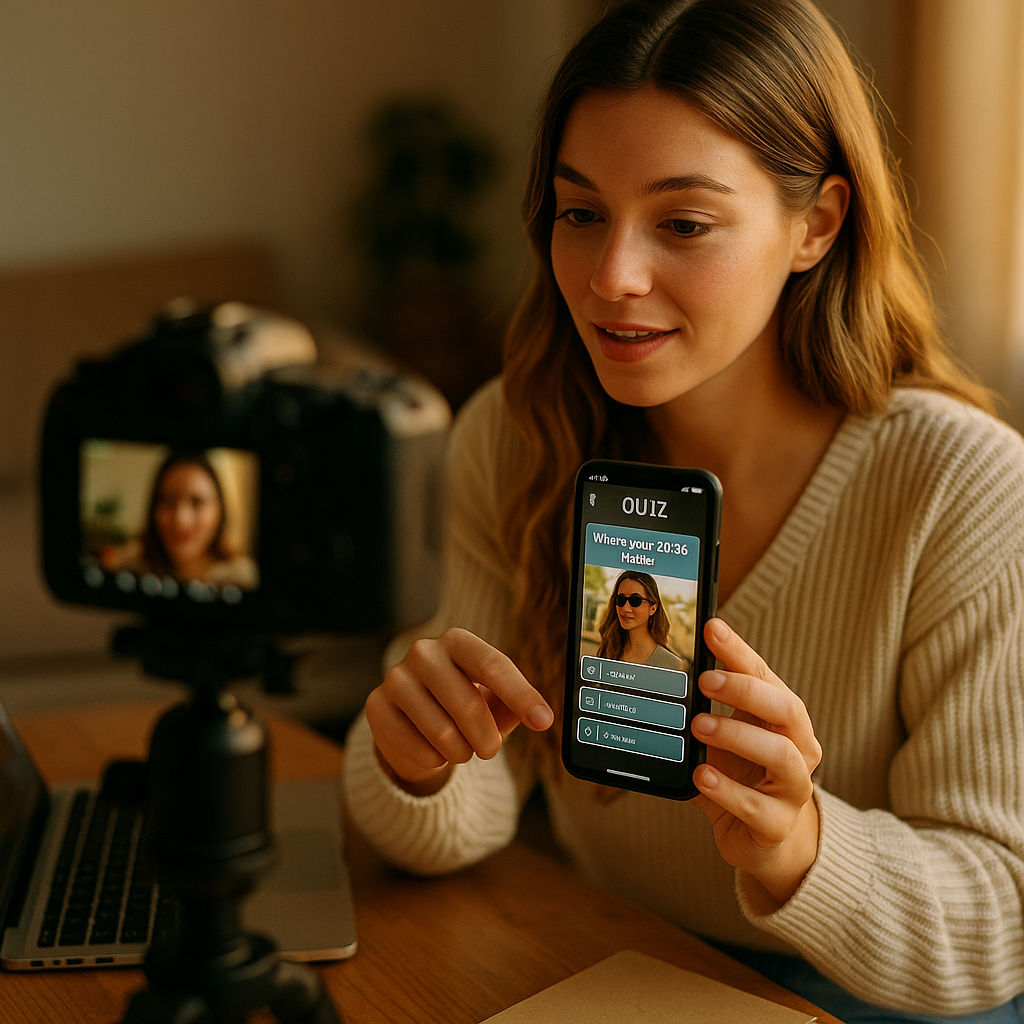Building a first-party data strategy is vital for brands as privacy regulations tighten in 2025. One innovative approach is using influencer-led quizzes and surveys to engage audiences while gathering valuable insights. Discover how your brand can collect authentic data, build trust, and drive higher ROI by leveraging this interactive, influencer-driven method.
Why First-Party Data Matters More Than Ever in 2025
With regulations like GDPR and CCPA shaping digital marketing in 2025, third-party cookies continue to disappear. Brands must rely on first-party data—information collected directly from consumers with their consent. This data allows companies to personalize marketing, optimize product offerings, and foster trust by respecting customer privacy. According to a 2025 IAB report, 81% of marketers now prioritize first-party data for long-term growth.
The Unique Power of Influencer-Led Quizzes and Surveys
Influencers have established trust and rapport with their audiences, making them ideal partners for collecting first-party data. By integrating quizzes and surveys into influencer campaigns, brands benefit from:
- Higher engagement rates—Audiences are more likely to participate when prompted by a trusted influencer.
- Targeted reach—Influencers can target niche communities, resulting in richer, more accurate data.
- Authentic feedback—Follower responses tend to be more genuine, enhancing data quality.
A 2025 HubSpot study shows influencer-led campaigns generate up to 42% more voluntary data submissions than traditional advertising alone.
Designing Effective Quizzes and Surveys for Data Collection
When creating quizzes and surveys with influencers, brands should focus on interactivity and relevance. Here’s how to design effective tools that maximize participation and valuable data collection:
- Align With Audience Interests: Work with influencers to ensure questions resonate with their followers’ interests and needs.
- Keep It Concise: Limit questions; 70% of respondents are more likely to finish quizzes under five minutes, per Statista 2025.
- Offer Value: Provide incentives, content exclusives, or personalized results as a reward for participation.
- Use Clear Opt-ins: Clearly explain how the data will be used, ensuring audiences grant informed consent.
Collaborate on quiz formats such as personality assessments, product finders, or trend polls relevant to both the influencer and the brand. This ensures maximum engagement and trust.
Leveraging Influencer Trust to Foster Data Sharing
Trust is crucial in persuading consumers to share personal information. Influencers play a pivotal role by:
- Setting the Tone: Influencers frame quizzes as fun and informative, reducing hesitation.
- Demonstrating Transparency: Openly sharing the partnership and explaining why data is being collected builds credibility.
- Providing Social Proof: Influencers can showcase their own quiz results or survey participation, motivating followers to join in.
Brands that respect privacy and communicate clearly with influencer partners see up to 60% higher completion rates on interactive experiences, according to Social Media Today 2025. This collaborative approach creates a win-win: audiences feel valued, and brands gather actionable insights for future campaigns.
Activating and Analyzing First-Party Data Responsibly
Gathering data is only the first step. Brands must:
- Store Data Securely: Use compliant platforms with encrypted databases to store quiz and survey results.
- Analyze for Insights: Break down responses by demographic, interest, or purchase intent to refine marketing strategies.
- Personalize Experiences: Use insights to tailor product recommendations, email content, and retargeting efforts (always within consented parameters).
- Maintain Compliance: Stay updated on privacy laws and honor user data preferences rigorously.
Following these steps not only enhances marketing ROI but also positions your brand as privacy-forward—a powerful differentiator in the 2025 landscape.
Best Practices for Collaborating With Influencers on Data Collection
To maximize results and ensure ethical practices, consider these best practices when building your influencer-led first-party data strategy:
- Choose the Right Influencers: Select partners whose audience closely aligns with your target demographic for higher relevance.
- Co-create Content: Involve influencers in quiz and survey brainstorming, ensuring authenticity and alignment with their voice.
- Set Clear Objectives: Define what data you aim to collect and how it supports your business goals.
- Monitor and Optimize: Regularly review participation rates, dropout points, and feedback to iterate and improve campaigns.
Building long-term partnerships with influencers reinforces audience trust and creates ongoing opportunities for meaningful engagement and data enrichment.
Conclusion: Elevate Your First-Party Data Strategy With Influencer Collaboration
Influencer-led quizzes and surveys offer a powerful route to first-party data collection in 2025. By harnessing the trust influencers command, creating interactive experiences, and prioritizing privacy, brands can build robust data foundations for personalized marketing and sustained growth. Start collaborating today to future-proof your strategy and connect authentically with your audience.
FAQs: First-Party Data and Influencer-Led Quizzes
-
Why is first-party data important in 2025?
First-party data is crucial due to stricter privacy regulations and the decline of third-party cookies. It enables brands to understand and market to their audiences effectively, while maintaining compliance and trust.
-
How do influencer-led quizzes improve data quality?
Followers trust influencers, so they participate more readily and honestly. This results in higher response rates, more relevant data, and deeper customer insights.
-
What types of quizzes or surveys work best?
Short, engaging formats like personality assessments, product matchers, or trend polls aligned with the influencer’s content tend to perform best and drive more participation.
-
How should brands use the collected first-party data?
Brands should use this data to personalize marketing, refine products, and improve customer experience—always respecting privacy and stated consent preferences.
-
What are compliance best practices for influencer-led data collection?
Always use clear opt-ins, explain data use, and operate on platforms that adhere to current privacy regulations. Review compliance regularly to maintain user trust.
